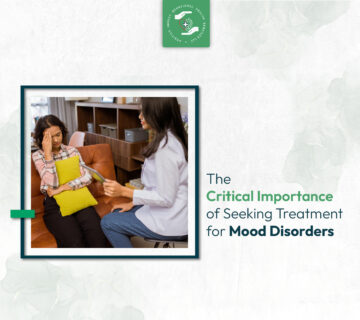In a world where stress and anxiety are common, holistic mental health offers an integrative approach to improve your overall well-being. Let’s explore what holistic mental health means and how it might benefit your life.
What is Holistic Mental Health?
Holistic mental health considers the entire person, focusing on physical, emotional, and spiritual well-being rather than just treating symptoms of mental illness. It centers on viewing mental health from a wider perspective that includes various dimensions of a person’s life. By integrating multiple facets of health, it acknowledges the nuanced relationship between how we think, feel, and connect with the world.
This approach goes beyond simply addressing symptoms or disorders and aims to improve overall life satisfaction and resilience. It focuses on optimizing health and happiness, recognizing that mental wellness involves a balance between a variety of life domains. The principles of holistic mental health underscore the importance of a well-rounded strategy to attain greater peace of mind and a deeper sense of purpose in daily living.
How Does Holistic Mental Health Differ?
Unlike traditional methods, holistic approaches integrate therapy, nutrition, mindfulness, and lifestyle changes to address the root causes of mental health issues. Whereas traditional therapy may concentrate on managing specific disorders with medication or psychotherapy, holistic practices encourage linking mental health with daily activities, social interactions, and personal beliefs. This method enables a customization that is both engaging and widely adaptable, integrating various elements to create a comprehensive treatment plan.
For instance, integrating mental health monitoring into a holistic care plan can help track progress and identify patterns that may influence well-being. This allows for timely interventions that enhance emotional and psychological support, aligning perfectly with holistic views of personalized care and ongoing wellness management.
What Are the Benefits?
The benefits include personalized care, improved mental clarity, reduced stress, and a stronger connection between mind and body. Those who embrace holistic mental health practices often report feeling more centered and capable of handling life’s challenges. The emphasis on mindfulness and self-care practices allows individuals to develop coping skills that are flexible and adaptive to various situations.
One of the key advantages is the enhancement of self-awareness, leading to better emotional regulation and healthier interpersonal relationships. Therapy services are integral in fostering these improvements, as they provide a safe space to explore personal challenges and develop effective coping mechanisms. Discover more about these transformative benefits in therapy services and how they enhance mental health.
Furthermore, engaging in holistic practices encourages a proactive stance towards mental health, which is often reflected in overall quality of life. By nurturing these various aspects, individuals experience improvements not merely in mental health but in their overall sense of well-being.
Exploring Holistic Practices
Practices like yoga, meditation, and acupuncture can promote relaxation and emotional balance, contributing to better mental health. Embracing these practices as part of a daily routine can significantly enhance mental resilience and provide a sense of stability amid life’s unpredictability. Yoga, for example, offers a harmonious balance between physical health and emotional serenity, leading to an enriching experience that supports both body and mind.
Mindfulness plays a crucial role in managing mental health, especially for those dealing with past trauma or excessive stress. Incorporating mindfulness exercises helps in grounding oneself, offering clarity and tranquility in moments of chaos. Activities like guided meditation foster a deeper connection with one’s inner self, promoting healing and growth.
Understanding holistic practices also involves considering lifestyle changes that boost mental health, such as maintaining a balanced diet and regular physical activity. A holistic approach recognizes these factors as foundational to emotional and mental stability, resonating with the essence of a well-balanced and interconnected life.
Is It Right for You?
Holistic mental health may be beneficial if you’re seeking a more natural, comprehensive approach to enhancing your mental well-being. It provides an opportunity for individuals to explore health in a way that resonates personally, tapping into aspects that traditional methods might overlook. Many people find this nurturing and inclusive approach aligns well with their values and lifestyle.
For those curious about trying holistic mental health solutions, it can be an empowering journey, building resilience and personal growth. By integrating numerous elements, from spirituality to physical fitness, holistic practices create a framework where individuals can thrive. If you’re looking to expand your approach to mental health, it might be time to explore how holistic mental health can play a transformative role in your life.
Embracing Holistic Mental Health for a Better You
Holistic mental health embraces the connection between mind, body, and spirit, presenting a comprehensive approach to enhance well-being. By integrating various practices, you can foster balance and resilience, ultimately leading to improved mental health.






No comment